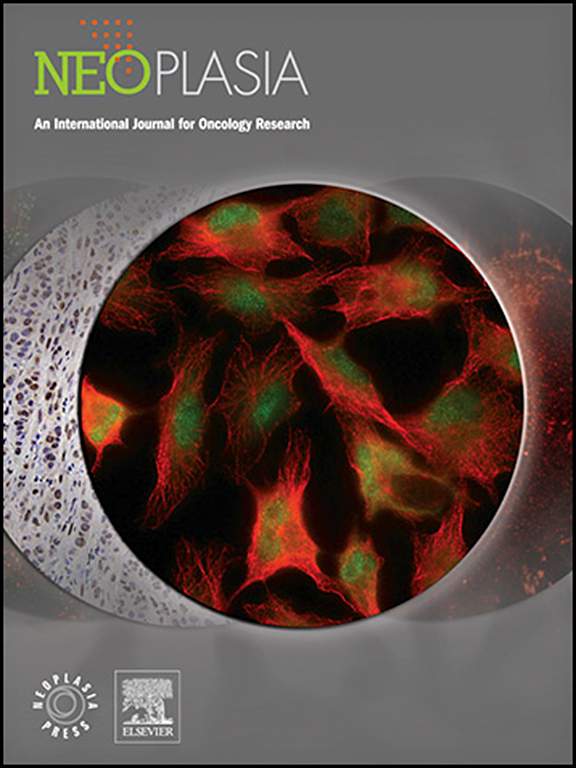与单一不饱和脂肪相比,饱和脂肪通过重塑ATP产生和Barrett食管炎症加剧线粒体功能障碍,特别是与食管腺癌相比
IF 7.7
2区 医学
Q1 Biochemistry, Genetics and Molecular Biology
引用次数: 0
摘要
肥胖相关性食道腺癌(OAC)起源于巴雷特食管(BO),其发病率随着高脂肪饮食的增加而上升。然而,脂肪组织表型驱动代谢特征。先前的喂养研究表明,与富含单不饱和脂肪酸(MUFA)的高脂肪饮食相比,富含饱和脂肪酸(SFA)的致肥性饮食诱导了更不利的代谢和促炎脂肪表型,尽管肥胖程度相同。我们假设不同的脂肪酸可能改变BO向OAC的进展,其中SFA可能比MUFA更具致病性。蛋白质组学分析显示,SFA而不是MUFA在BO细胞中更大程度地增加脂肪酸代谢、致癌信号传导和线粒体呼吸链,而在OAC细胞中则没有。细胞代谢分析证实了蛋白质组学研究结果,显示BO中线粒体功能障碍,但与MUFA相比,SFA治疗后OAC中糖酵解增加。此外,在BO和OAC细胞中,SFA处理后线粒体ATP生成减少。减少SFA的摄入量可能是有益的辅助治疗方法,以管理和/或防止OAC进展。本文章由计算机程序翻译,如有差异,请以英文原文为准。
Saturated fat exacerbates mitochondrial dysfunction through remodelling of ATP production and inflammation in Barrett’s oesophagus compared to monounsaturated fat, particularly in contrast to oesophageal adenocarcinoma
Obesity-related oesophageal adenocarcinoma (OAC), arising from Barrett’s oesophagus (BO), incidence rates are rising coincident with high-fat diets. However, adipose tissue phenotype drives metabolic characteristics. Prior feeding studies demonstrated that obesogenic diets enriched in saturated fatty acids (SFA) induce a more adverse metabolic and pro-inflammatory adipose phenotype, compared to monounsaturated fatty acids (MUFA) enriched high-fat diets, despite equal obesity. We hypothesise that different fatty acids may alter the progression of BO to OAC, wherein SFA may be more pathogenic compared to MUFA. Proteomic analysis shows that SFA, not MUFA, increases fatty acid metabolism, oncogenic signalling, and mitochondrial respiratory chain to a greater extent in BO but not in OAC cells. Cellular metabolic analysis validated proteomic findings to show mitochondrial dysfunction in BO but showed an increase in glycolysis in OAC following SFA treatment compared to MUFA. Additionally, it showed a decrease in mitochondrial ATP production following treatment of SFA in BO and OAC cells. Reduction of SFA intake may be beneficial as a supplementary treatment approach to manage and/or prevent OAC progression.
求助全文
通过发布文献求助,成功后即可免费获取论文全文。
去求助
来源期刊

Neoplasia
医学-肿瘤学
CiteScore
9.20
自引率
2.10%
发文量
82
审稿时长
26 days
期刊介绍:
Neoplasia publishes the results of novel investigations in all areas of oncology research. The title Neoplasia was chosen to convey the journal’s breadth, which encompasses the traditional disciplines of cancer research as well as emerging fields and interdisciplinary investigations. Neoplasia is interested in studies describing new molecular and genetic findings relating to the neoplastic phenotype and in laboratory and clinical studies demonstrating creative applications of advances in the basic sciences to risk assessment, prognostic indications, detection, diagnosis, and treatment. In addition to regular Research Reports, Neoplasia also publishes Reviews and Meeting Reports. Neoplasia is committed to ensuring a thorough, fair, and rapid review and publication schedule to further its mission of serving both the scientific and clinical communities by disseminating important data and ideas in cancer research.
 求助内容:
求助内容: 应助结果提醒方式:
应助结果提醒方式:


